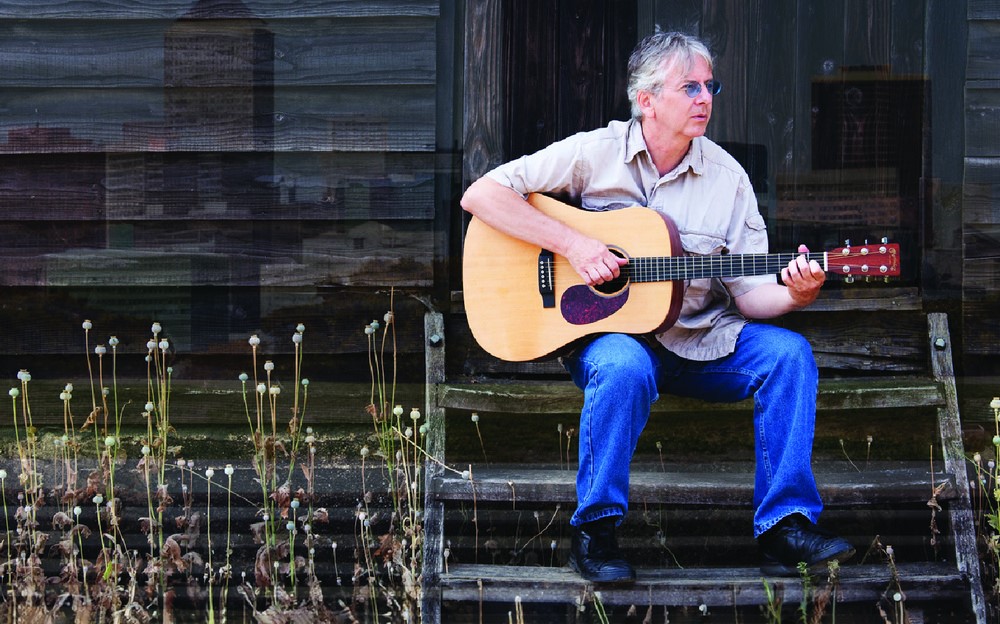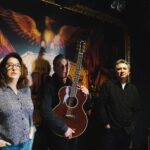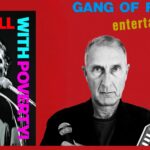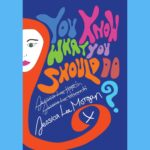
Roger Knott speaks to Jason Barnard about his long-awaited compilation, Nashville Sessions. From archive recordings to collaborations with esteemed producers and musicians, this compilation stands as a testament to Knott’s dedication to his craft.
What significance does Nashville hold in your musical journey?
Nashville is the place where I found the musicians and producers who were sympathetic to my own musical vision. I’ve known that singer-songwriters of various stripes have flourished in Nashville in the past but, had it not been for the fact that my friend Pat McInerney had moved there to work with Don Williams and later Nanci Griffith, I might never have had an opportunity to go there and experience things for myself.
I had recorded some demos at my house in Spain and, following advice from a mutual friend who gave me Pat’s address, I mailed them to Pat for his opinion. He responded by inviting me over to record, in his words “to see how we do things here”. Pat had accumulated a network of musical friends from which he hired players for the sessions. The players were strongly motivated to find the right “feel” for each song, contributing their parts without dominating. What impressed me was how every song immediately rose to another level as soon as these talented players got to work on it.
Most importantly, it was there that Pat introduced me to guitarist Thomm Jutz who he had recently met. Thomm later became my producer of choice and has played on virtually all of my 140 Nashville tracks. Thomm has created his TJTunes studio just outside of Nashville as a peaceful and relaxed space where you never feel pressured by time and you can be unreservedly creative.
“Late Bloom” and “Sudden Rain” are highlighted as key tracks. Could you delve into the stories or experiences that inspired these particular songs?
“Late Bloom” is a song about finding love later in life but is also an analogy for my personal musical journey which didn’t really get underway until I was in my fifties. As a youth I’d been dissuaded from a musical career with all its uncertainty and insecurity so I wound up earning my living as an IT consultant. It wasn’t until I suddenly found myself without family responsibilities that I felt free to fully pursue my musical path.
“Sudden Rain” describes a fleeting chance meeting in the rain, echoing the subject matter of the Hollies’ hit “Bus Stop”, but again there’s an only slightly hidden reference below the surface. A beautiful apparition emerging from a storm representing success over adversity is one possible interpretation. In the song the girl is elusive, though, and disappears again, much like success!
Your musical journey traces back to the 1960s with the band Lifeblud. Can you tell me more about that period? How do you feel your music has evolved since then, and what aspects of your early experiences still influence your songwriting today?
I am of the generation whose grandparents and parents struggled through World Wars One and Two respectively and my early growing years were in the austere surroundings of bombed-out London, still living with wartime shortages and rationing. The music of the previous generations seemed rather tame and sedate by comparison to the Rock & Roll that was to come. Suddenly teenagers were a thing and had the spending power to dictate their own culture and create a musical landscape of their own making.
The original Rock & Roll artists of the period strike me now as quite a disparate bunch, associated only by their common age group. The Everly Brothers had Country roots while Chuck Berry was from an R&B background and Elvis of course took in Blues and Gospel as well, binding the whole thing together. One thing I remember vividly as a 10-year-old was watching Eddie Cochran perform the jazz-influenced Ray Charles number “Hallelujah I Love Her So” live with a string section on one of Jack Good’s UK television music shows and I was forever smitten.
Back in those days, the BBC was the UK’s sole legal onshore broadcaster, and it was reluctant to supply enough popular music to satisfy teenagers’ hunger so we had to tune in to Radio Luxembourg at night under the sheets and later the pirate ships on our transistor radios to get our fill of our favourite music. The British single charts I followed at the time reflected a variety of genres with Country, R&B and Jazz artists all making a showing, alongside the Pop of Phil Spector’s “Wall of Sound”, the Brill Building songs, and the Soul of Motown, Atlantic and Stax. Meanwhile, British artists were taking New Orleans “Trad” Jazz and a homegrown folk-blues form called Skiffle for brief flirtations with the hit parade. All this was the backdrop of my early musical education and I’m sure continues to have a subliminal impact on me.
So, with all this music running through my head, I started a band at school covering the chart hits of the day and then formed Lifeblud when I left school, beginning in 1969 as a folk-rock group. We had all been listening to Fairport Convention, Steeleye Span, Pentangle, etc. all with a distinctly English flavour. Then progressive rock became the thing with bands like Genesis, Yes, King Crimson, Patto and Family so we evolved in that direction. I am still reaching back into all those musical influences today. It’s a well which never seems to run dry.
What prompted the release of the archive recordings, and how did that period shape your musical identity?
I realised I had amassed quite a large amount of material and, though I had previously issued my own limited edition CDs for friends and family, I decided to see if a larger audience and a wider distribution was possible for the tracks. In my search I discovered Think Like A Key Music, a Miami-based label dedicated to championing the spirit of the independent artist, who recently released the first compilation of my tracks titled “Nashville Sessions”.
The historical transatlantic back-and-forth nature of English-language popular music has always fascinated me, from how early folk ballads from the British Isles were nurtured and preserved among the mountain folk of Appalachia to how the R&B and Blues of African-Americans arrived in post-WW2 Britain to be re-imported into the US via the British invasion of the 1960s. Without wishing to sound presumptuous, I kind of feel I belong to that process in a very small way.
I’m not sure what my musical identity is because my songs are not typical Nashville songs, having a discernable British character to them, so they might be something of an anomaly but I hope I have something unique and interesting to bring to the table.
The compilation features 48 songs. Can you tell me about the periods they relate to and who you collaborated with?
Most of the songs were written during the 2005-2016 period during which I was quite a prolific writer with a distinct feeling of making up lost time. One exception is “Paycheck Friday” which comes from the Lifeblud period and also “The House Where We Lived” which is a virtual re-write of “Tenement”. You can find the originals of these on the Lifeblud albums on vinyl and CD that have been released by Seelie Court.
I have ensured that I acknowledged and detailed all the numerous players and producers I collaborated with during this period in the sleeve notes for the Nashville Sessions release that I mentioned earlier. I travelled to Nashville at regular intervals during this period whenever I had enough material to make up an album. The personnel varied according to who was available at the time and what instrumentation was appropriate for the songs.
You worked with Clive Gregson, Pat McInerney, and Thomm Jutz as producers. How did they influence your sound?
It might be no coincidence that all my Nashville producers have been of European origin, being English, Irish and German respectively. I think this helped me retain my musical identity while simultaneously feeding into their local knowledge of the Nashville scene.
Pat McInerney produced my first album and he brought in some great players like Richard Bailey of the Steel Drivers on banjo and Mike Daly of Whiskeytown on steel guitar. Straight away that took the sound in a Bluegrass and Country direction. For the second album, Clive Gregson sat down with me and helped me re-structure the songs where needed, sometimes simply adding a pause in the phrasing or suggesting a change to my arrangement. Clive had been a guitarist in a new wave band but had evolved into a solo acoustic artist playing the folk clubs so he was well versed in the acoustic vibe I was after.
Thomm on the other hand works very much in the moment and doesn’t like to overthink anything, being very intuitive. He never plays a solo the same way twice. He is a multi-faceted guy, excelling as a musician, arranger and producer, but once he has agreed to produce a song he stays faithful to my original structure. Thomm has since become an artist in his own right, recently collaborating with ace guitarist Martin Simpson on a splendid folk album “Nothing But Green Willow” on the legendary Topic label.
Can you share some insights into the themes or personal experiences that inspired “All For The Lady” and “Been Down That Road”?
I should emphasise both these songs refer to friends’ experiences rather than my own, even though they are written in the first person.
On the surface “All for the Lady” describes a fictional family playing traditional music together with the mother as a matriarch. Appalachia in the 1930s was the locale I had in mind. It has occurred to me though that this setting might be an unintended subconscious reference to Our Lady in Catholicism. I am not religious myself but, surprisingly perhaps, the theme of spirituality often crops up in my writing as it can add a certain gravitas to the proceedings. Hence, there are references to faith in “Heirlooms” and “Travelling Through The Music” whereas “Making Plans For A Dying Man” directly contemplates the afterlife, and “Faith And Proof” debates the alternatives.
“Been Down That Road” is a song warning against malign influences encountered during the search for life’s meaning, denouncing the escapism offered by hard drugs together with that of bogus belief systems. I had some young friends in the 1970s who followed an Indian guru and I saw first-hand how their unquestioning devotion to him emptied their pockets and clouded their judgement while I was somewhat sceptical, an opinion validated by subsequent events. So far as drugs go, I’ve not personally indulged but have witnessed the deleterious effects they can have on a life. I didn’t intend this song to be preachy but merely a presentation of the evidence.
Can you discuss the role of storytelling in your songwriting, and how it contributes to the overall narrative of “Nashville Sessions”?
Story songs can be appealing because they can have a logical flow with a clear beginning, middle and end that can engage the listener throughout as the song develops. “Uncle Charlie’s Baton” for example is a true story of a distant family member. He’s the only one of my ancestors I am aware of who entered “musician” as his occupation on an official document. I know very little else about him so I slightly elaborated the story as the facts on the ground were rather thin. I still have the aforementioned baton in my possession.
The verses in ”Only On Loan” are two separate fictional stories contained in one song both illustrating the same theme that dishonesty may come at a high price. One verse concerns a politician, the other an athlete. You can decide who the culprits are as there’s plenty of choice out there! The rather fatalistic final verse asserts that all lives are only on loan anyway at the end of the day.
Some of my songs are based on historical events. “Cutting Edge” for example addresses John Lennon’s 1966 remarks concerning the Beatles popularity but instead of being sympathetic to him (which I am) it speaks from the viewpoint of his detractors which I found more pertinent to comment on because to me the naysayers are condemned by their own words. “Save The President” concentrates on the moments of disbelief immediately following the shooting of JFK sixty years ago in November 1963. “The Legend of Lead Belly” is a brief resume of the true life of the folk and blues hero Huddie Ledbetter. He strikes me as one of the most interesting figures and a recent film describes him as the true king of Rock and Roll. He died still trying to make a name for himself and in the year following his death one of his songs, “Goodnight Irene” became a huge hit for the Weavers group that featured Pete Seeger.
As the songwriter behind this material, do you have personal favourites or songs that hold special significance to you, and why?
I have a particular affection for “The Sound Of Your Name”, especially for the interplay between Clive and Thomm’s acoustic guitars. I remember while doing the vocal take thinking I felt like a Jazz singer negotiating the melody! Writing it, I remember walking through the streets of Milton Keynes where I used to live and the rhythm and pace of my footsteps helped me find the melody as I walked, the first and only song I’ve written that way.
“Follow Your Footsteps” happened almost by accident. Pat came to my hotel room before the sessions and I played this sketchy idea to him. His first suggestion was to make it a final hidden track, a bit like “Her Majesty” on Abbey Road. We played it simply with me on a mandolin borrowed from Thomm the day before, Pat with brushes on a snare drum, a supporting banjo and 3-part harmony vocals on the choruses. It went so well in the studio that its long mesmerising coda expanded it into a full length track and it’s now one of my favourites from the period, containing a worthy message. I remember the engineer Dan Spomer exclaiming “Great words!” during the run through.
What’s next? Are there any upcoming projects that you’re excited to share?
I have 94 remaining tracks from Nashville that I am keen for people to hear soon. Some are what I call my “gateway” songs from 2004 that originally opened the door for me into Nashville. These will be released later in new versions retaining the original vocals. I have also re-visited the songs of the Lifeblud period from much earlier days in order to present them in a new way and, continuing to vary my outlook, I have also co-written some songs and covered some friends’ songs which I think deserve greater exposure.
I am preparing all these to fill two further 2-CD sets that I’m negotiating with Think Like A Key Music to release over the next period of time. Beyond that, I hope to get back to writing, perhaps in a completely new and different setting and location.




